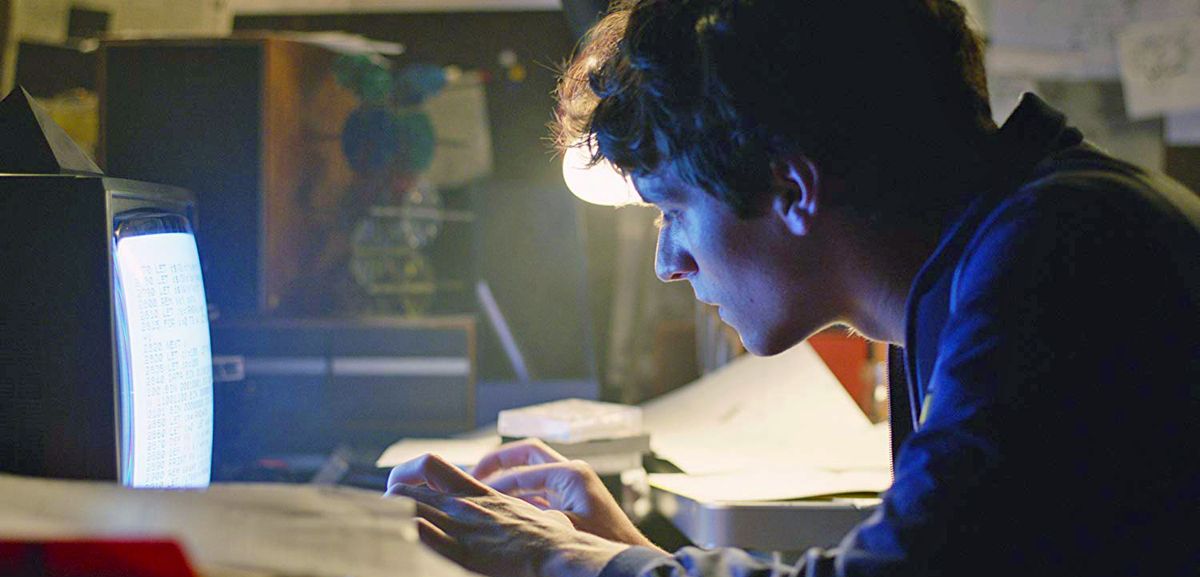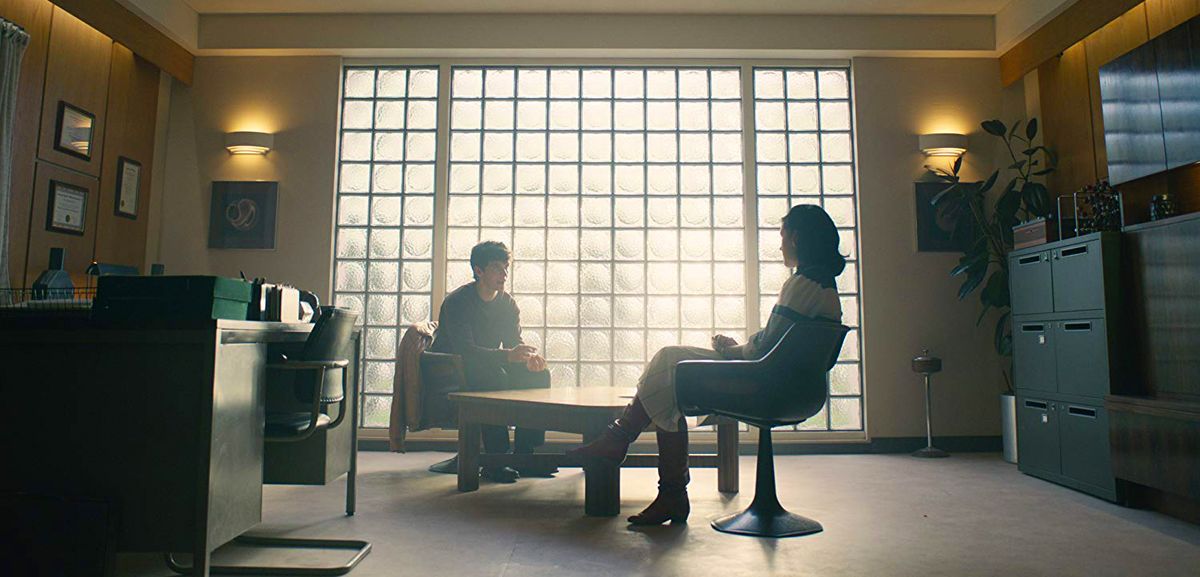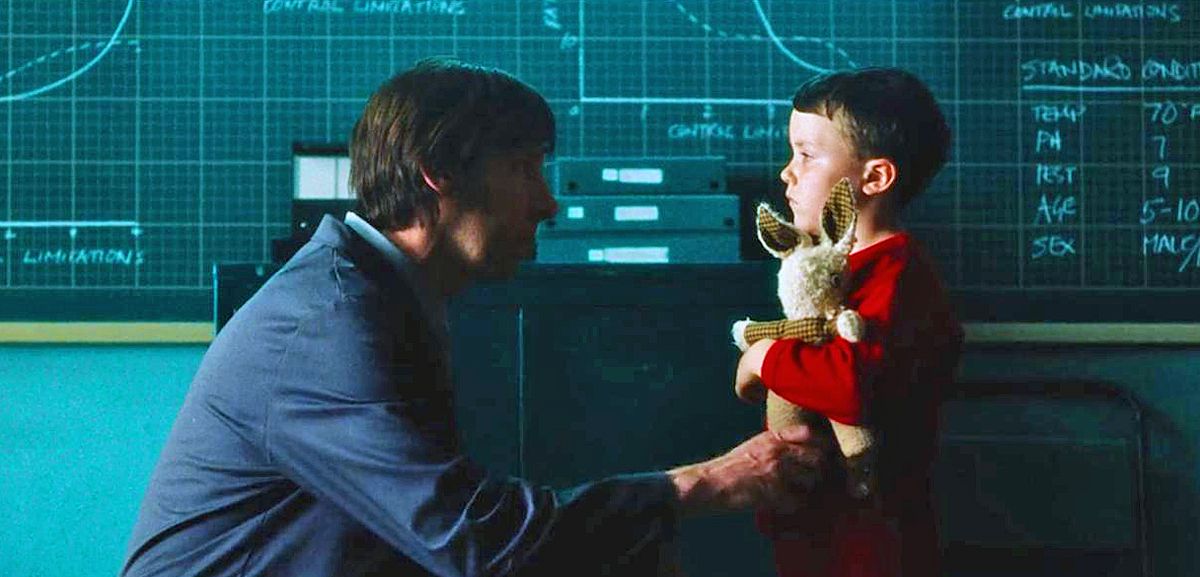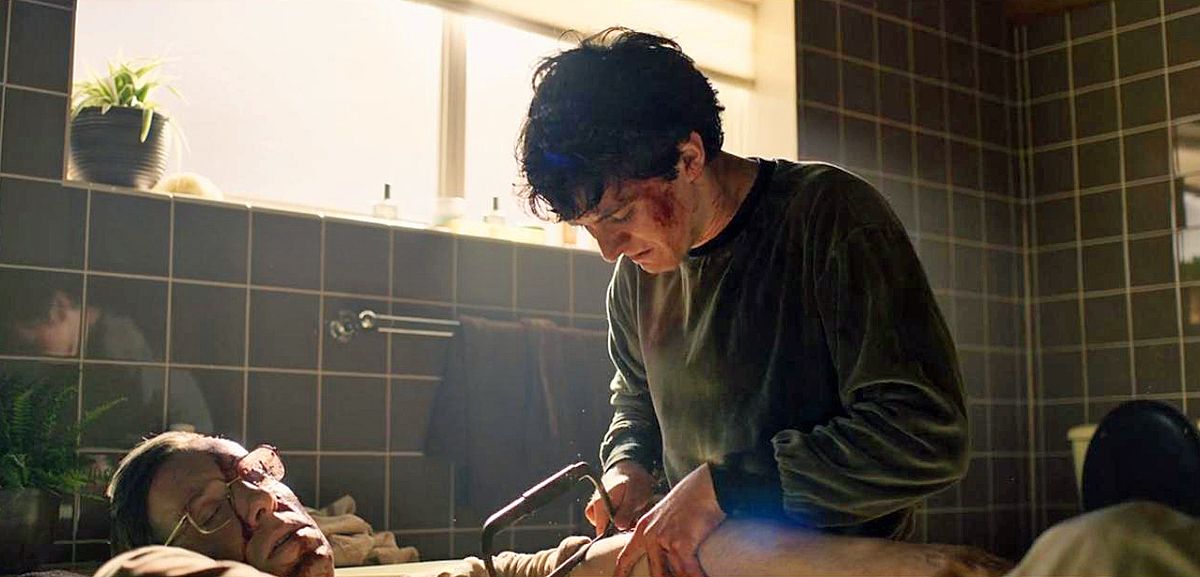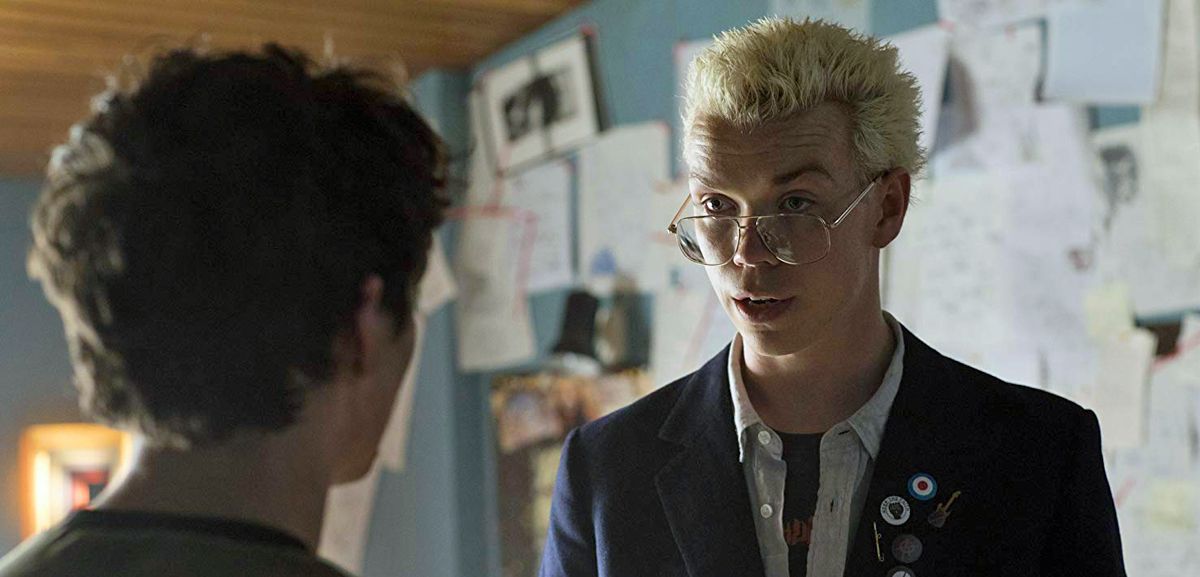WARNING: The following article contains spoilers for Black Mirror: Bandersnatch, streaming now on Netflix.
Despite a string of widely publicized cancellations, Netflix ended 2018 on a high note with Black Mirror: Bandersnatch, an interactive thriller that combines the high stakes of Telltale's The Walking Dead with the philosophical complexities we've come to expect from series creator Charlie Brooker's anthology series. Viewers control the protagonist's choices, leading to five main endings and infinitely more story combinations. But given Bandersnatch's running themes on free will and the fixed nature of fate, is there truly more than one ending -- or is this promise of "more" simply misapprehension?
Starring Dunkirk actor Fionn Whitehead as game developer Stefan Butler, Bandersnatch emphasizes on the illusion of free will, when in reality, our path is fixed and inescapable, and not ours to carve or choose. The film's unlikely MacGuffin -- a video game called Bandersnatch -- epitomizes this age-old tug of war with its surprisingly unvarying mechanics. The 1984 Tuckersoft title is based on a fictional "choose your own adventure" book by equally conflicted author Jerome F. Davies, and forces players to select between two options provided throughout the narrative, until they're left with only one. Brooker, who wrote the script, then uses the gameplay to create his own version of Bandersnatch, forcing Netflix viewers to make choices for Stefan until the film arrives at one of its five promised conclusions.
RELATED: Here Are Black Mirror: Bandersnatch's 5 Main Endings
To allow viewers the flexibility of multiple endings, however, implies having to disagree with the illusion of choice -- the film's apparent and proclaimed law of the land. If free will is truly futile, and destiny is unavoidable, then why permit the ability to even create several endings? Knowing Brooker, he likely planned for only one correct outcome, specifically the one that resulted in Stefan's death at age 5 in the train derailment.
Throughout the course of several viewings, multiple endings are tested out, but only one closes the loop: unexpectedly enough, Butler's overdue passing in Dr. Haynes's clinic, caused by temporal alterations to his past.
In that ending, Stefan finally resolves his issues over the traumatic death of his mother by taking his stuffed rabbit back from his father shortly before the day of the train accident, allowing him to join his mother on that fateful trip, and perishing in the tragedy that followed.
Every other "ending" concluded with yet another choice, and regardless of what viewers selected, the movie always circles back to when Stefan was begging for a sign -- heavily implied to be the film's climax and Stefan's personal now-or-never moment -- forcing us to repeat the same events, only with grossly different choices. Bandersnatch was especially particular on this, and only stopped offering choices -- or the ability to tap into our free will -- once we picked the sign ("Netflix") that would inevitably lead to Stefan's death, and an outcome in which he couldn't have conceptualized Bandersnatch in the first place. In most Groundhog Day-style stories, like writer Scott Lobdell's 2017 slasher film Happy Death Day, the movie only allows itself to end once the hero makes the only correct choice. In this case, shortly after Stefan joins his mother in the afterlife, the film immediately cuts to the credits, and no longer presents the viewer with the option to continue.
The One Choice That Was Offered Only Once
Consistent with its powerful themes on the ability (and inability) of self-determination to truly govern our fate, Brooker's story hints at two, rather polarized, messages: that we always have a choice, but if we truly desire change, we must be capable of, first, reducing the number of options and therefore aim for something more manageable -- which, ironically enough, is what Bandersnatch forces us to do at every turn, as we progress through every loop. In the end, we must make a particular choice not because it's right, but rather, because we are left with nothing else. That flips the concept of free will on its head, because it challenges our ability to make our own conscious choices, while still encouraging the same capability no matter how moot.
RELATED: Black Mirror: Bandersnatch Isn't the Choose Your Own Adventure We Wanted
Stefan's first discussion with the therapist hints at much more than his volatile mental state. It coyly suggests there could've been another choice years earlier that might have resolved his mother's death better -- a plot point that originally offered no alternative for viewers, other than Stefan at age 5, symbolizing his projected helplessness -- supporting the argument that the train ending might have been the only correct outcome. Stefan is wracked with guilt over the death of his mother, not only because he blames himself for delaying her trip, thereby forcing her to take the later train, but also because he wonders whether there could have been another decision available that more tenably taps into his free will.
NEXT PAGE: Stefan Is Only Truly Free in One Bandersnatch Outcome
This is especially notable because the scene with Stefan's toy rabbit is the only part of the film where viewers are not allowed to make a choice, preferring to offer only one or none at all, leaving us helpless to watch the protagonist make the same loop-inducing decisions in every parallel reality.
Eventually, after several loops, and the option to pick Netflix as a sign, viewers are finally given the opportunity to get the rabbit back from Stefan's father, allowing him as a child to finally join his mother on the train -- and, knowing Bandersnatch and the film's overarching themes, that's no coincidence.
It Best Illustrates the Illusion of Free Will
There are several outcomes in the film that capitalize on the murder of Stefan's father. The audience is given the choice to either chop up his body or bury it whole, but each leads to a vastly different conclusion. If viewers opt for the much darker path, to have Stefan chop up his father, Stefan will experience a profound moment of self-actualization where he realizes that, no matter what choices players pick, he still gets to decide Bandersnatch's eventual ending.
RELATED: Bandersnatch Has a Secret Video Game That You Probably Can't Play
In essence, there is no free will -- only the illusion of it. And the illusion of there being multiple endings to this film is part of that. On the surface, there might be several outcomes we could go for, depending on the choices we make, but at the end of the day, the only one that matters is the story combination that ends the loop. In reality, the choices can change, but the path remains the same. Bandersnatch believes this to be natural law, and there is no reason to think the film would want to contradict itself.
It is the Only Ending that Finally Freed Stefan
Black Mirror: Bandersnatch highlights the inescapable yet freeing nature of death through fellow programmer Colin Ritman and his insightful commentaries on the deeper philosophy of life and death. Played by The Maze Runner's Will Poulter, Colin likes to reference the Pac-Man throughout Bandersnatch, which he insists is allegorical to the reality of rebirth; that it doesn't matter how many times we die, we'll always come out the other side -- symbolizing the greater workings of the universe and the story's constant looping.
Bandersnatch only "freed" Stefan from the Pac-Man machine that was his life when the audience's choices finally ended the loop. This running message on how living might feel like a prison explains quite succinctly why Stefan dying is the only outcome that stopped the looping -- because the film argues that his passing is the only ending in this particular scenario that could. His demise freed him from his guilt surrounding his mother's untimely death, because only an act of true freedom, akin to Colin's description of Pac-Man, could the story have continued without ever looping again.
The train accident is also the only ending where neither Colin nor Stefan's father suffer a terrible death, implying that this choice freed them, too.
RELATED: Black Mirror Season 5 Will Be Delayed Because of Bandersnatch
Black Mirror: Bandersnatch delivers an emotional and spiritual jab that could liberate the world-weary viewer in search of answers at the closing of 2018. Its overarching message is simple: In real life, sometimes we have moments when we're "stuck," when we constantly revolve around specific choices that, at the end of the day, only return us to where we started -- the loop. This is the reality of Stefan Butler's writer's block.
But, there's a silver lining that the film only subtly accentuates. In the words of Gabriel Garcia Marquez, John Green's Looking for Alaska, and classic Buddhism, the labyrinth exists wherever we go, but there is a way out. Life will always give us infinite choices to experiment with every possible outcome, giving us the illusion of free will, but it will not leave us in the labyrinth to fend for ourselves, endlessly trying out endings that offer no veritable exit. Life always offers the possibility of release, as it will not stop offering options until we pick the right one -- and only then can our story finally move forward.
Directed by David Slade from a script by series creator Charlie Brooker, Black Mirror: Bandersnatch stars Fionn Whitehead, Will Poulter and Asim Chaudhry.

